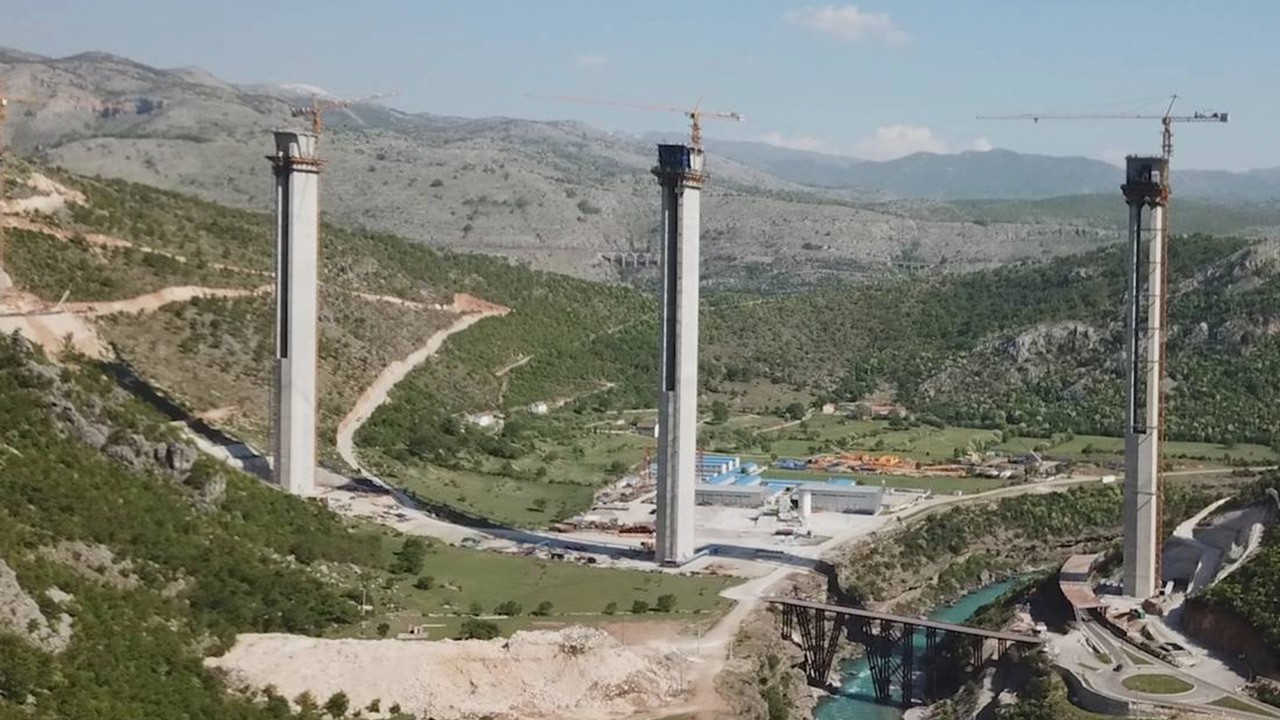Getty Images
German leader Angela Merkel stopped the collapse of her government Monday, but at the cost of agreeing to tough new immigration measures — including “transit centers” for migrants created on the country’s border with Austria.The last-ditch agreement with her rebellious Interior Minister Horst Seehofer represents a significant climbdown for Merkel, who had welcomed hundreds of thousands of migrants to Germany. Seehofer, Merkel’s political ally turned nemesis, had threatened to resign over her failure to implement his party’s demands for new border controls at last week’s summit of EU leaders, prompting a series of crisis talks in recent days.The move may be enough to save her three-month old coalition government, which had faced potential disintegration.But it leaves the veteran chancellor with seriously depleted political capital, and analysts warn the compromise is only a stopgap solution to an issue that will continue to create fissures in German and wider European politics for the foreseeable future.“It just means she holds the ship for now,” Nina Schick, director at political consulting firm Rasmussen Global, told VICE News.“Long-term, it’s still going to be a huge issue in Germany, and Merkel may not serve her full fourth term. It’s just that Seehofer could not force her out.”Under the deal, newly arrived migrants will be screened in “transit centers” along the border, which will be treated legally as not within Germany’s borders. Those found to have already applied for asylum in other EU countries will be sent back there. Berlin has been working to negotiate bilateral deals with its EU partners that would help it facilitate their return, with mixed success; neither Italy nor Austria, which migrants pass through on the main transit route to Germany, have agreed.The compromise deal represents a backdown for Merkel, who supports the principle of free movement across Europe’s borders, and had been against moves to essentially resurrect border controls until she struck the agreement Monday.“She’s shifted a little bit in the direction of Seehofer which is to have [transit] centers at the German-Austrian border,” said Hans Kundnani, senior research fellow in the Europe programme at London’s Chatham House think tank.“It’s a more partial reintroduction of borders in the Schengen area.”But the success of the agreement seems far from assured. It still needs to be approved by the third partner in Merkel’s governing coalition, the Social Democrats, who nixed the proposal when it was proposed by the CSU in 2015. The party’s stance towards the proposal now is unclear; while it may be wary of prolonging the crisis that has engulfed the coalition, party leader Andrea Nahles said Tuesday that she opposed the term “transit centers.”READ: Angela Merkel could soon be brought down — by her own coalitionThe proposal could also face pushback from Austria, which lies between Germany and Italy and where migrants rejected by Germany under the agreement would potentially be forced back. Austrian media carried a statement from Austrian Chancellor Sebastian Kurz and his deputy Tuesday that said if Berlin adopted the proposal, “then we will see ourselves forced to take actions to avoid disadvantages for Austria and its population.”With Merkel’s position weakened, and politicians across Europe divided over migration as ever, her government is not out of the woods yet, analysts say.“These measures are only a sticking plaster on what looks set to remain a major and long-term crisis for Europe,” Matthew J. Goodwin, author of the forthcoming book ‘National Populism: The Revolt Against Liberal Democracy,’ told VICE News.“It looks set to divide Europeans for years – and possibly decades – to come.” Cover image: German Chancellor and leader of the German Christian Democrats (CDU) Angela Merkel attends a session of the Bundestag the day after she and German Interior Minister and leader of the Bavarian Social Union (CSU) Horst Seehofer reached a hard-wrung compromise over migration policy on July 3, 2018 in Berlin, Germany. (Sean Gallup/Getty Images)
Cover image: German Chancellor and leader of the German Christian Democrats (CDU) Angela Merkel attends a session of the Bundestag the day after she and German Interior Minister and leader of the Bavarian Social Union (CSU) Horst Seehofer reached a hard-wrung compromise over migration policy on July 3, 2018 in Berlin, Germany. (Sean Gallup/Getty Images)
Advertisement
Advertisement
